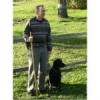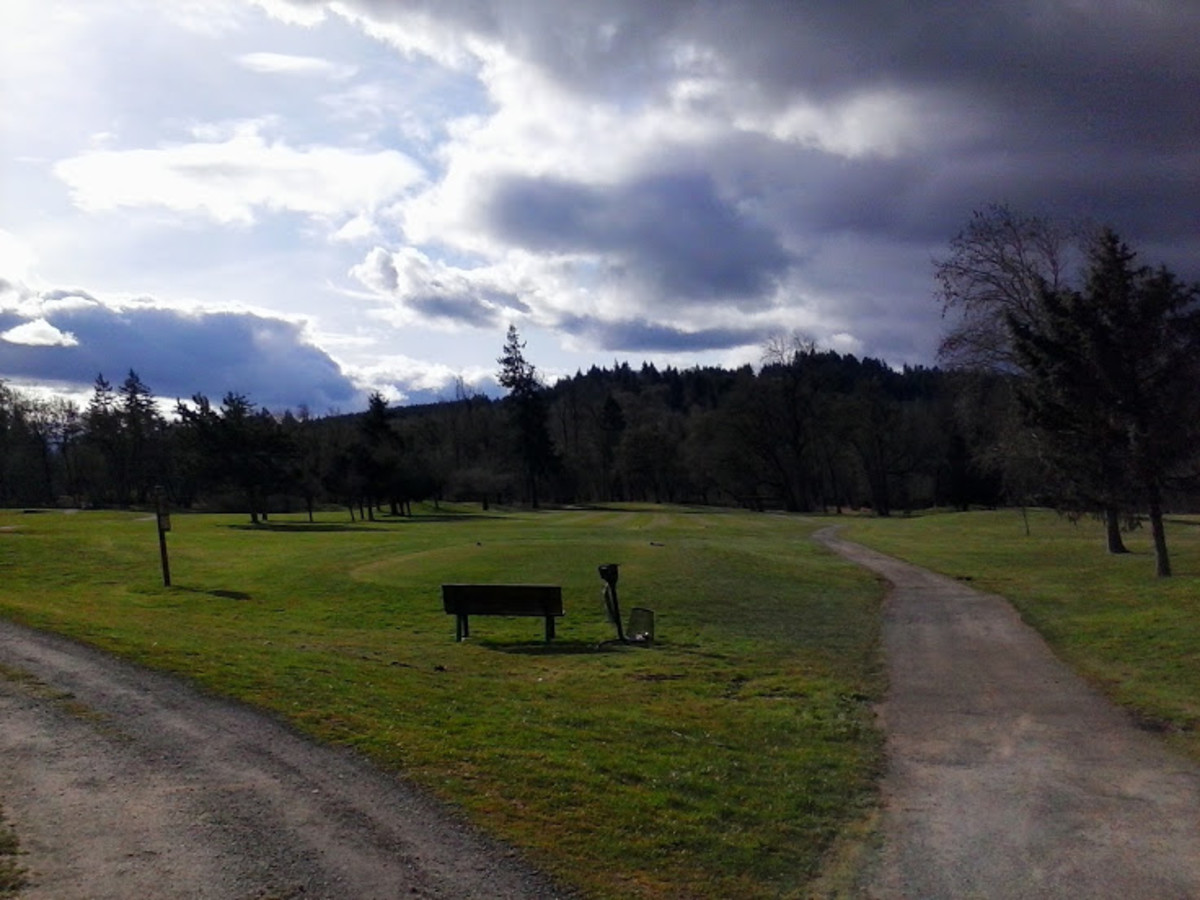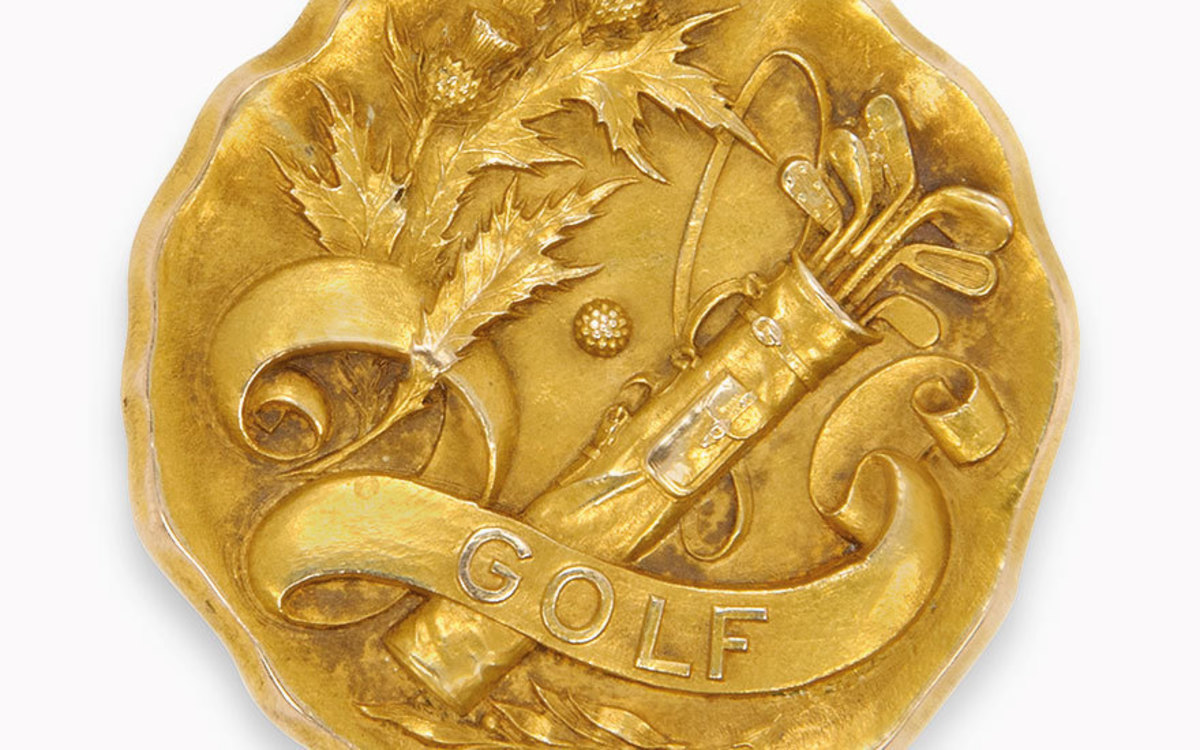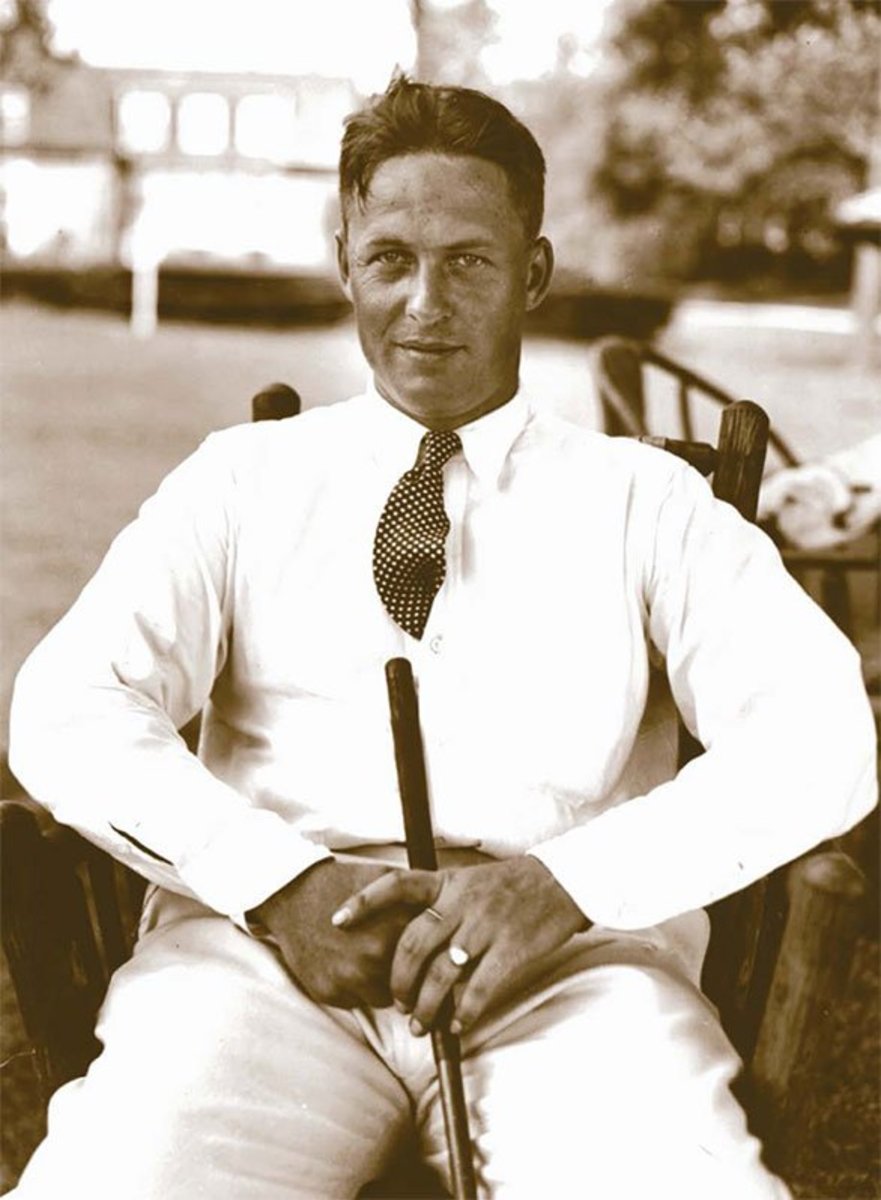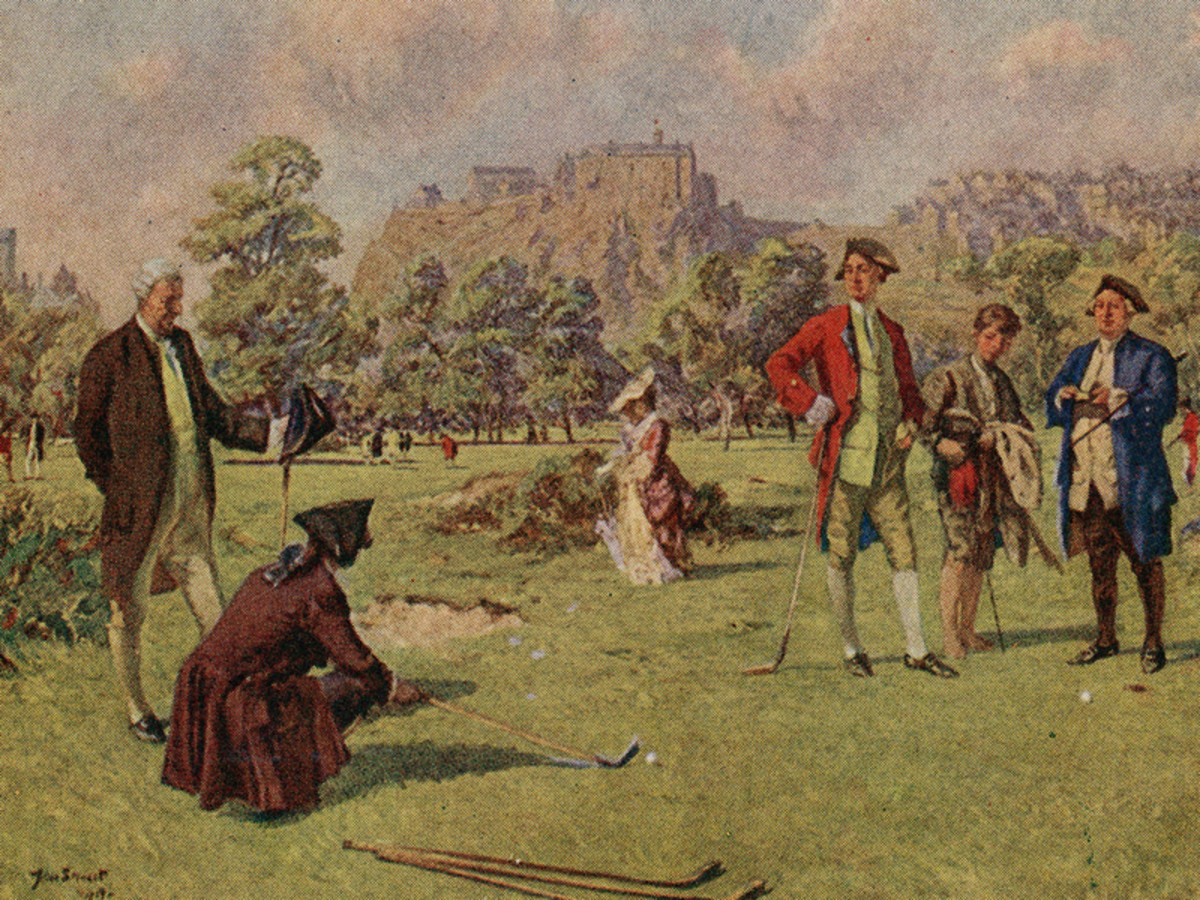Golf and the Self-Watcher (The Monster That Destroys All Potential)

Stay Tuned, It Really is About Golf
Because my name is Ed, as the observant reader will already have noticed, I tell people when meeting them on the first tee that the story of my golf game is called ‘Dr. Jekyll and Mr. Ed’. Why that doesn’t get a laugh, I can’t fathom. If it does get laughs then I’m confident I might enjoy the company of my playing partners.
I need to caution you at this point that this article, even though it really is about golf, will reference so many things that have nothing to do with the sport, that you might think I decided to write a study about sub-text, or allegory, whereby it’s the elephant in the room that no one can mention by name, but wink, wink, we are talking about that evil destroyer of men's souls, golf.
For people who are picking up the sport just now and looking for a great article to get you swinging those clubs in a manner where the earth worms can safely ditch their Kevlar helmets and breath easy again, this article is not for you. This article is for people who have tried every aspect of golf, are disgusted with the game and are quite ready to throw their sticks in the pond by the clubhouse and then jump in after them, leaving only a note on their shoes and wallet. I did write a great article for beginners. However this article is for, shall we say, enders. You’re at the end. You’ve golfed a million times on a million courses. You can swing, putt, chip, cry, and drink. Did I mention cry?
I will open a psychology shop right across from the golf course, and I will teach adult men that it’s okay to cry. In group therapy sessions I will get golfers who have just finished a round and teach them to sob openly, unashamedly. Hey, if Nick Faldo and Bubba Watson can cry when winning The Masters, it should be okay for you to sob when losing The Septic Pumper’s Union Invitational.
It might even be the start of a religious sect where we intone the chant ‘We are not worthy. We are not worthy.” That, in fact, is what most golfers think anyway: they are not worthy of a good game. Golf is a game where you beat yourself up. It’s a game where you jump into a ring and face not one, but eighteen huge Russian boxers with gleaming silver teeth, all molars, where the bell ringer is on the take from the Mob, and where the bashing behemoths tag team play dirty behind the crooked referee’s back. There the similarity ends, since a good bashing in the ring is over in a few minutes. In golf it lasts not only the four or five hours that it takes to finesse your shots into every sand trap and side-running stream, but goes home with you and shares space in your house for a week, much like your Uncle Hamish who eats all the Oreos while reminding you what a loser you are.
One game, about ten years ago, I was mid-round. I had scored birdie-birdie-par-birdie when I approached the tee of a long dogleg, hilly, par five. To say I was playing over my head is a Grand Canyon-esque understatement. Dr. Jekyll told Mr. Ed repeatedly, ‘You’re going to screw up. No way can you keep this going.’ Dr. Jekyll started golfing for me on this hole, since I was too nervous to continue. There are precisely five fairway bunkers on the left side of this hole. How do I know? Because I visited each one before getting the ball onto the green. Did I mention I three putted for a grand total of nine? Do you see how cruel Dr. Jekyll is? I still remember that disaster ten years after the event in vivid detail like it was a train crash with many dead. For some unknown reason I don’t focus on the extremely positive aspect of what happened that day - I had three birdies in four holes!
Golf as an Art
Golf is not a sport, it is an art. Anyone can play golf but only an artist can be a champion at it. The suckers are the ones who think how they play relates directly to what they think of themselves as human beings. Those are the ones coming back to take up residence on the range, because they know they can hit good balls in the safe zone, where mistakes are allowed. Hit a bad ball on the range, you simply set up another one and scientifically diagnose the trouble in a state of calm. Hit a bad one on the course with water on one side and out of bounds on the other, and smoke emanates from your ears. Suckers roped into this game imagine themselves needing to be heroic, as rising above the rest by having a great golf game, to be admired, to have people hand them accolades, money and nubile daughters in recognition of their great skill.
There is another such hero complex that many young people become attached to in order to live out their worship fantasy - Music - just as equally soul destroying and frustrating. But in it lies the path to unraveling the mysteries of the one culprit that bars the way of anyone wishing to perform at their best. That mystery is ourselves.
The Self-Watcher's Self Destruction
We are all self-watchers. That’s a term I just made up for this article and I’m sure that highly qualified psychologists have industry nomenclature for it. You might remember it better with my simple name. A self-watcher is someone who, even though playing golf alone, is able to see themselves as another person would. The self-watcher hovers slightly above or behind the artist, floating, ready to strike when you make a mistake, and in any art, there will be one, some or many. So it’s almost a certainty that your self-watcher will be disappointed in you at some point during play. To be good at anything when you’re performing in front of people you must end the life of the self-watcher within you. But you can’t be just good when performing, you must be perfection itself. That’s what the self-watcher wants to see, but rarely does.
Picture if you will that you are performing as a musician. I will use public domain examples, since we run the risk of a lawsuit if an article contains so much as a line of lyrics. So, back to your musical performance. It’s going to be a big night, you’ve advertised to all your friends and family that you’ll perform ‘Bah Bah Black Sheep’, a song which they all know and love. The coffee house fills to the rafters with expectant listeners but they all adore you, so you’re feeling safe. Out of the blue, and for no particular reason, into the cafe walks Paul McCartney. He has sold a million copies of this song, and now you have the temerity to get on stage and sing it. “Here’s how it’s done, Paul.” The self-watcher in you has already started his evil work.
The self-watcher gets up on stage, tries to smile, and makes a poor joke that no one really hears because they were too busy talking. Your self-watcher is chanting, don’t screw this up, don’t screw this up. You start to sing. You’re doing okay. In case you forget the song, you have the words right in front of you on paper, ‘Bah bah black sheep, have you any wool?’ But your vision starts to blur just a little. Does that line say ‘have you any wood?’ No. I’m just too far away to see it correctly. Did I just sing, ‘have you any wood?’ What the heck did I do? Is that why the audience has a quizzical look on their faces? Is that why Paul is getting up to leave? Did I take too long on that passage? Why did I not sing that right on the beat? So many things go through your head, everything except the words of the song on paper right in front of you.
You haven’t concentrated on the next notes to be played and sung. Pretty soon, you’re trying to find where the lyrics are on the page but can’t find the right spot. It’s a tune that’s burnt into your memory but now you make another mistake, since you weren’t able to concentrate. One mistake leads to another and the song completely breaks down. The self-watcher is right, you are not worthy, but in reality, it is your self-watcher who caused the breakdown.
Musical Golf
Firstly, there is a world of difference between someone who can parrot out a rendition of ‘Bah Bah Black Sheep’ and one who is a master of voice and instrument. A master thinks of a note in his head and can play it. The fingers play the note on the instrument, without technical guides to tell them how to play, it just filtered down the arm and onto the instrument at the subconscious level. An artist has learned to play what’s in their head, directly expressing the notes through their hands without conscious thought. The fingers play pretty much like a voice can hum what’s in your head.
If you’re playing golf in a mechanical fashion, take the club back, raise it to hip height, make the ell, turn your hips to this point, unleash the wrists, and all manner of swing thoughts and coaching, then you aren’t a master, not an artist. Under pressure you will suck, trust me. All of these technical swing thoughts will destroy a good game. The self-watcher in you will make certain that you feel unworthy, and just like a stage performance that went wrong at 120 beats per minute, one mistake will lead to another. It’s not any more soul destroying to do this in golf; it’s just that the process lasts longer. I can fume for six holes about a bad shot on the first.
You must kill Dr. Jekyll without destroying Mr. Ed, the horse with the funny teeth. How many professional tournaments have you seen where a really great player has gotten nervous on a Sunday round. On the first tee being last to play, with the entire world witnessing by the use of satellites, he shanks one left into the bushes. If you don’t recall this happening, you aren’t watching golf very much. It happens very often, and I would say almost always to a self-watcher.
Here is an adage for every golfer - a golf game cannot be won in the fairways, but it can be lost on them. The self-watcher is very critical, so if he hits a perfect drive down the center, two hundred and fifty-five yards away he will not be happy. When his competitor hits it two yards farther, he will feel inadequate and vow to do better. If his competitor hits it 305 yards down the center, the self-watcher will start the self-loathing and will not be happy until he hits a 306 yard shot, outdoing his competitor. He’s taken the bait, and he’s doomed, because he has told himself his swing is no good. If you have a drive that goes 255 down the center, stop. Learn other skills, especially getting up and down. Tell the self-watcher to go to hell.
I golfed with a man named Joe. Joe was my boss, but otherwise a nice person. He was of average build. His drives went in a slight banana fashion up the fairway on the right rough about two hundred yards forward. Joe would hit another one that might go near the green, or on it. That’s when Joe did his best work. Up and down. Whereas my score would be double bogey from the center of the fairway, Joe would be bogey or par from the sides. I think Joe carded his lifetime best round one day with me when we were not even concentrating on the game. We talked about everything and nothing, wherever the subjects may have taken us, and the four hours drifted by. We had a philosophical meeting of the minds and at Eighteen we added them up, and there it was, birdies, pars, and nothing worse than a bogey. Joe had a good day because the self-watcher was on vacation. What’s more, we both had pretty good scores but I don’t think it was something we wanted to celebrate. We were simply happy that we had a good and friendly chit-chat.
If Joe were to consciously try to have a good round he might have shanked and sliced his way to the regular ninety-two or worse. To me that’s proof that you need to send Mr. Jekyll, the self-watcher on a one way trip to another galaxy.
In another round with Joe and his taller friend Big Joe, I was as intense as you get as I studied every shot as though our mortgages were the prize money. We were on the green of a par three and I was first to putt. Big Joe (a great golfer BTW) was chatting amiably with Little Joe and he asked me quite innocently what I wanted done with the flag, tend or no. I was plumb-bobbing, in a deep state of concentration ignoring all, and Big Joe asked me again, “What do you want me to do?” Roused as though from a deep hypnotic trance I broke my concentration and said, “I want you to stand over there and be quiet!” What a jerk I was to these two fine people. That’s golf. It’s a game where our intense fear of failure hovers over us, frowning fiercely, so that we blame innocent birds for tweeting. Fellow golfers get blamed for being too congenial. Damn them, you say, why is he enjoying life while I’m here trying to sink a fifteen footer! Eventually you stop blaming the birds and innocent bystanders. It’s you. Had I been a better person I would have tried to learn from Big Joe. The way we approach golf reflects an awful lot about our personalities. In my defense, my personality was formed long before I realized what a weak, fearful monster I was creating. Unless one is prepared to change that flawed personality, not much will happen to your game. Or your life, too, I suppose.
While I’m dishing out adages, here’s another. Success or failure at anything you do in life comes from within.
A golf game cannot be won in the fairways
— Elvis the Golfer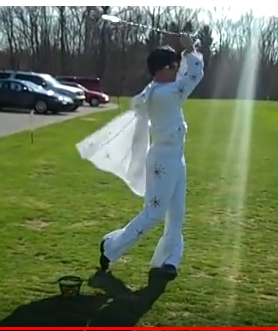
Elvis The Golfer
John Paul Newport suggests in his excellent book, The Fine Green Line, that we should develop alter-egos, such as the pro he met, Ken Harrelson, a former Boston Red Soxer who called himself The Hawk. He said, “You think that was me pulling off all those heroics? You gotta be kidding...The Hawk was great. My only job as Ken Harrelson is to try to get out of The Hawk’s way.”
I had come to that same conclusion while singing and playing guitar in public. I can practice at home for a week, have the song down pat for a hundred renditions, and still make a mess of it during show time. I am not a master. I’m a good amateur, but not an artist. But I did get better. I would get up on stage and say to myself, ‘let’s give these people what they want to hear, which is a great tune belted out with all I’ve got.’ And then some kind of showman takes over and I get out of his way. I let him screech out that tune to his heart’s content. Dr. Jekyll is nowhere to be seen. Like a golf game, I concentrate note by note on what has to be done NEXT, not what has just happened. The only distraction I permit myself is to view the next two or four bars of music. Sometimes the distractions are all over the place begging for my attention but I stay focused on the sheet in front of me and I get through it. Why Nick Faldo and others cry when winning the Masters is due to the fact that golf, in tournament play, is a symphony that lasts four days and one bad note during that four days play could be the difference between winning and losing. The pressure to perform flawlessly is enormous, the tension and stress unbearable.
I absolutely hated the Elvis stage personae back in the day, but now I understand it better. It probably helped Elvis a lot. Having the foresight to be named Elvis didn’t hurt either. I don’t know how accepting the golfing world would be if I donned a black wig, with sideburns and bejeweled white cape, so I haven’t decided yet what my golfing personae will be. But I’m convinced I need one that will make the self-watcher happy or go away in disgust.
The self-watcher who follows me around on the course will forgive my bad shots simply because that wasn’t me that hit them, it was Elvis. The self-watcher will be happy to be in the company of Elvis the Golfer so he won’t be so critical and shame inducing. He’ll say ‘Aw, Elvis, what’s a fat shot between really good friends.’ He’d actually try to suck up after a good shot from one-sixty-five that rolls up to the stick and bounces off for a gimme. I want my self-watcher to clap and hoot-hoot when I play well. And he’d be positive about my game when I needed a cheerleader not a critic.
So that’s what I’m working on this year; a new, flashy golfing personae which doesn’t invite ridicule. Well, not to my face at least. That and my short game.
In everything you do, success or failure comes from within
— Elvis the Golfer